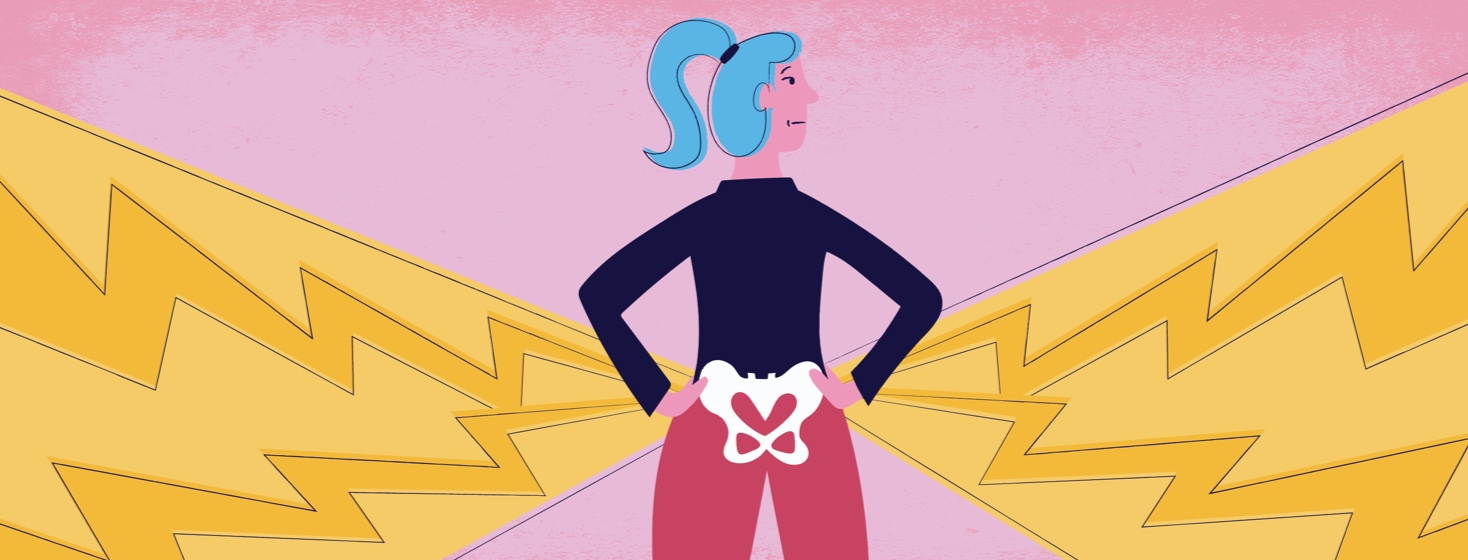Tailbone Pain And Endometriosis
Ever since my first period, I suffered from excruciating periods, which I managed with strong dosages of ibuprofen for years. However, in my late twenties, whilst living in Belgium, I began to experience a new type of discomfort. It was a pulsating, extremely sore feeling around my tailbone and expanding to my hip. On the worst days, it limited my movements, giving me a limp.
My experience with inconclusive tests and scans
I had to take time off work, repeatedly, to rest and have a myriad of tests done: MRIs, scans, ultrasounds. Every single imaging test under the sun, I had it. One doctor said there was nothing wrong with me, another mentioned scoliosis, another suggested spinal surgery. My GP gave me painful cortisone shots that did next to nothing.
Some of my scans showed a swelling around the sacrum, but not a single doctor attempted to explain that. They kept telling me that maybe I had fallen on my backside and forgotten. It frustrated me how they never believed me when I said I'd remember a fall like that.
I was sent to do several sessions of physiotherapy. It barely helped. I ended up in the ER several more times, and was prescribed stronger painkillers. Paired with the ones I took for my period pain, all that medication ended up destroying the lining in my stomach.
Eventually, I had to give up a job I loved. It broke my heart.
The pain in my tailbone never went away
The physiotherapy, expensive pilates sessions, and endless hours of yoga, whilst helping me cope with the pain, didn't manage to make it go away.
I moved to Spain, and again, attempted a full-time job. I lasted a year, spending a couple of months off work because the pain wouldn’t let me sit in front of a computer. The company I worked for covered the costs of every test I had done. Doctors concluded they couldn’t find a reason for the pain I described. My employers, believing there was nothing wrong with me wouldn't allow me to work remotely or part-time. I had to quit yet another job I was good at.
All of the tests and lack of answers affected my mental health. I gave up trying to find what was wrong with my tailbone. I got occasional treatments to manage the pain, and the massage therapist doing them told me that the issue was not my bones, nor my spine. It had to be somewhere deep inside of me. He just had no clue where.
At the age of 36, and at that point living in the UK, I was diagnosed with complex endometriosis. A year later an endometriosis specialist performed surgery on me and told me something that shocked me to my core: “Your sacrum was covered in adhesions”.
Post-surgery, the pain hasn’t completely gone away, but it has eased up a lot. Every so often, it’s like my sacrum awakens, and the pulsating pain returns.
What helps me manage my tailbone pain
Here are some things I do to manage my tailbone pain...
Yoga and any kind of hip-opening exercises
Anything that stretches the muscles and tissue surrounding my sacrum helps. As a trained yoga teacher, I know what poses to avoid. Navasana or boat pose is not advisable with tailbone pain, since it is easy to make the mistake of leaning on our sacrum, instead of on our sit bones.
The way I sit
I avoid sitting in the same position or on the same chair for more than 3 hours. If I do any sort of long-haul travel, I get up as much as I can and stretch. Again, I focus on hip-opening exercises.
Taking baths with relaxing oils
Anything that will soften my muscles, epsom salts or essential oils, will relax that area of my body and relieve the pain.
Finding the right osteopath
This can be tricky, and it is important to only go to someone who is an expert in treating the sacrum, or someone with extensive experience. I have tried several, and only one was able to provide some relief.
At this point, my tailbone pain is definitively chronic. It takes careful management, but also acceptance, whenever it flares up.

Join the conversation